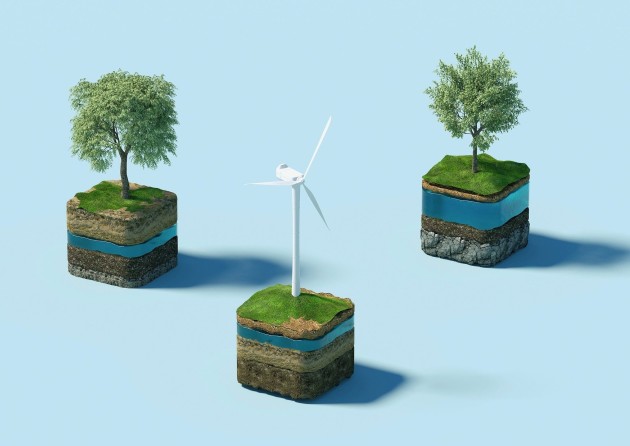2022 Net-Zero Laboratory
Vision
We are launching world-class facilities to undertake research in field of transition to zero pollution. We are entering a golden age of chemical engineering and this new lab will help us achieve our ambitions in net-zero, for the greater good of society.
Context
 One of the first actions from Imperial’s recent Academic Strategy was to launch last month a transformational cross-disciplinary programme in research, education, and innovation that will help society: 'Transition to Zero Pollution' (TZP). This initiative brings together researchers from across Imperial to realise a new low-carbon future by building new partnerships across fundamental science and engineering, systems thinking, human health, new business models, and policy-making. TZP aims to inspire a radical shift in industrial systems, technologies, business models, and government policies.
One of the first actions from Imperial’s recent Academic Strategy was to launch last month a transformational cross-disciplinary programme in research, education, and innovation that will help society: 'Transition to Zero Pollution' (TZP). This initiative brings together researchers from across Imperial to realise a new low-carbon future by building new partnerships across fundamental science and engineering, systems thinking, human health, new business models, and policy-making. TZP aims to inspire a radical shift in industrial systems, technologies, business models, and government policies.
The transition to a zero pollution future requires a truly joined-up approach to problem solving. Scientists, engineers, clinicians, and economists must work together to come up with innovative technologies and policies that address not just a single problem but the entire system and life cycle.
Net-Zero Laboratory
As the centrepiece of the Department of Chemical Engineering’s contribution to TZP, we plan to create the 2022 Net-Zero Laboratory. Here, we will work on basic, applied and translational research in support of the near-zero pollution economy. Research will include, for example, the creation of net-zero energy and industrial systems, the capture of carbon dioxide from the atmosphere, and the development of carbon negative aviation fuel. These research programmes fit with the new College Strategy’s themes of ‘Sustainable Society’ and ‘Resilient Society’, and the Faculty of Engineering’s ‘Zero Pollution’ strategy, as part of the whole TZP initiative.

In the new lab, we will have dedicated workstations designed around experimental workflows, and themed preparative and analytical equipment/unit operations leading to higher productivity and satisfaction. In so doing, we will move away from the existing paradigm of relatively small, single PI labs and towards a 21st-century way of conducting leading-edge research.
The 2022 Net-Zero Laboratory, which as a space will showcase innovation in low-carbon construction and building operation, will combine novel experimental facilities (materials synthesis, materials characterisation, small and medium scale experimentation and reconfigurable facilities with all the necessary services). Facilities of this nature are more flexible and enable much more rapid reconfiguration of experimental programmes. We envisage projects on sustainable materials, chemicals and fuels, electrochemistry, carbon dioxide capture and conversion and hydrogen taking place in these facilities. There will also be write-up and informal meeting space adjacent to the labs.
Research projects
Planned research projects include:
- Decarbonisation of industrial and energy processes and systems
- Re-imagining the chemical industry
- Capture of CO2 from the atmosphere
- Clean hydrogen production
- Production of fuels and chemicals from non-fossil sources
- Developing a circular chemical economy


